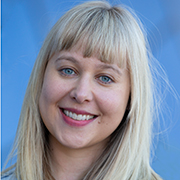A remarkable oral history archive of more than 150 personal video stories shared by Aboriginal and Torres Strait Islander people across Australia is available on our Encounters website.
The films are a legacy of the generosity of communities involved with the exhibition Encounters: Revealing Stories of Aboriginal and Torres Strait Islander Objects from the British Museum. More than 200 people shared their knowledge, opinions and family histories, often welcoming us to their home or country to do so.
We hope this important archive continues to educate and inspire people everywhere. Our thanks go to all those who shared their stories. See a selection below or explore all our Encounters films.
Sharing country
Many of the people we interviewed shared their special places on country with us. Dieri man Willie Dawson shares a Dreaming story about Killalpaninna in the Central Desert:
Gunditjmara woman Denise Lovett talks about the importance of Lake Condah in Victoria and Wangkangurru and Yarluyandi Elder Don Rowlands shares his cultural knowledge with the story of Narratala, a campsite that was used by his ancestors.
Importance of community
Some interviews took place in groups, which emphasised the importance of community. I love the film ‘Making a ghost net dinghy in the Torres Strait Islands’ because it captures the dedication of a group of artists drawing on the strengths of their community and environment:
Teresa Bolt, a Kamilaroi woman who lives in northern New South Wales, shares her experiences weaving with friends as part of the Wake Up group and reflects on the healing practice of communal art. Gunditjmara rangers at the Framlingham Aboriginal Estate share their thoughts on what it means to work on country, and show how they have restored ancient eel-hunting networks on the Hopkins River in Victoria.
Ways forward for museums
Many of the people interviewed inspired two-way dialogues about how museums should engage with Aboriginal and Torres Strait Islander communities. Dr Shayne Williams, a Dharawal elder from Sydney, explains how Indigenous cultural materials represent a shared history in Australia and should be treated as national treasures.
Tasmanian Aborigine and curator Tony Brown reminds us of the importance of the first person voice in museums:
Shared history
To explore our shared history, the Encounters project also interviewed non-Indigenous people, particularly those whose personal histories are embedded in first contact. For example, we interviewed Duncan Ord, who talks about reconciling parts of his family history after his grandfather, Craven Harry Ord, was involved in killing Bunuba resistance leader Jandamarra in the Kimberley.
Neale McShane, the (now retired) police officer at Birdsville, discusses the history of the police in the colony of Queensland, and their relationship with Aboriginal trackers and the Native Police:
Childhood memories
Many of the people we talked with reflected on childhood memories. Aunty Norma Simms, a Bidjigal and Darug elder living in La Perouse, recalls shell-making with her family, providing a history to what is now a celebrated craft practice in the region:
Repatriation and custodianship
Issues about custodianship and repatriation were often at the heart of the interviews and highlighted the importance of cultural materials to contemporary communities. Dja Dja Wurrung Elder Aunty Fay Carter and her son, Rodney Carter, talk about honouring the bark etchings sent to the British Museum in the 19th century, reflecting on the message of the barks and their ongoing significance.
Ned David, a descendant of 19th century Tudu leader Maino, shares a different experience. His community is content, owing to their particular circumstance of collection, for cultural materials collected from the Torres Strait Island of Tudu, to remain in the British Museum collections today:
